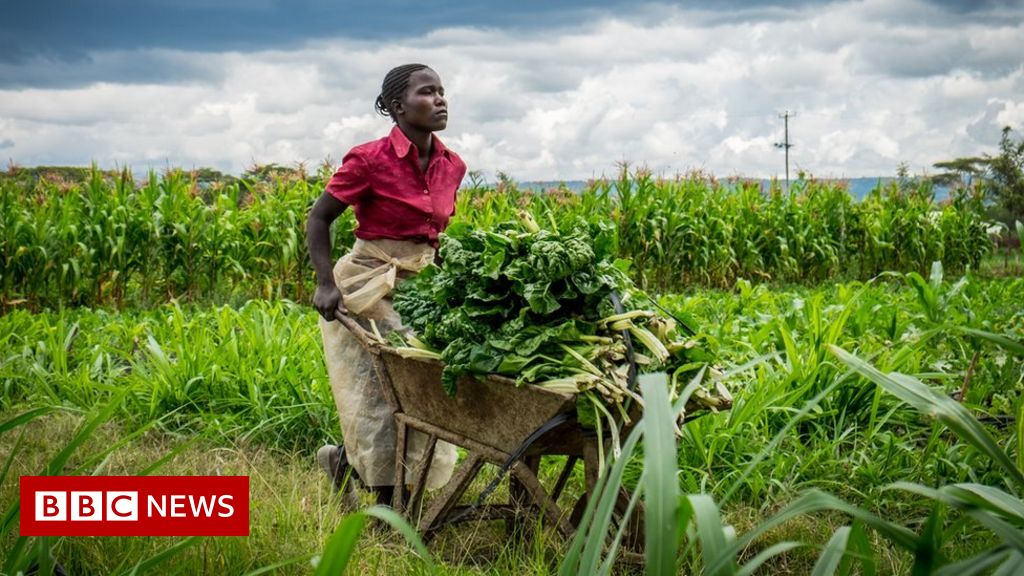Rising prices on gas and groceries are prompting Americans to pull back in other areas, raising fears that lingering inflation — coupled with a new covid wave — could be slowing economic growth.Retail sales edged up 0.3 percent in November from the month before, the Commerce Department reported Wednesday, well below the 0.8 percent gain forecast by economists.It’s also a significant slowdown from the 1.7 percent spike recorded in October, when many Americans began their holiday spending in earnest.
The categories with the largest increases reflected the rising costs of fuel and food, with gas stations notching a 1.7 percent jump in sales.Spending at restaurants and bars rose 1 percent, while grocery store sales climbed 0.9 percent.But spending was down considerably in key holiday categories compared with October, when many retailers began rolling out early Black Friday deals.Department store sales slumped 5.4 percent, while electronics and appliance stores posted a 4.6 percent decline.“Stubbornly higher prices — which consumers had shrugged off in recent months — are finally taking a toll on household budgets,” said Matthew Sherwood, global economist at the Economist Intelligence Unit.
“While grocery stores still did a booming business, it is telling that furniture and home furnishings sales were stagnant, and electronics and appliance stores saw sales plummet.”Overall consumer prices are up 6.8 percent from last year, the largest level in nearly four decades, the Labor Department reported last week.Gas prices have soared nearly 60 percent since last year, while food prices are up about 6 percent.Consumers are feeling the pinch, with 1 in 4 citing rising prices for eroding their living standards in November, according to the University of Michigan’s consumer sentiment index.
Meanwhile, fewer Americans shopped during the five-day Black Friday weekend — the traditional kickoff to the holiday shopping season — and those who did spent less.‘The deals are just horrible’: Shoppers say a lack of holiday discounts has dampened spending The Federal Reserve on Wednesday signaled that it plans to address inflation by winding down bond purchases sooner than planned.
Official said they are forecasting three interest rate increases next year.“The path of the economy continues to depend on the course of the virus,” the Fed said in a statement .“Risks to the economic outlook remain, including from new variants of the virus.”Economists said renewed global health concerns from the omicron variant, which was discovered just before Black Friday, have already contributed to the slowdown in sales growth.Even so, overall retail sales rose 18.2 percent from last year’s depressed levels.“Consumers are being a bit more cautious,” said Gregory Daco, chief U.S.economist at Oxford Economics.“We know from prior experience that whenever there is a new covid wave, there tends to be more reservations about spending.”And while earlier rounds of fiscal stimulus gave Americans the confidence and means to continue spending, Daco says families are more cautious now, knowing there aren’t immediate plans for stimulus checks or boosted unemployment benefits if the economic outlook worsens.“We’re not in that mode of ‘Congress is going to pass massive amounts of fiscal aid’ anymore,” Daco said.“In the face of renewed health concerns, households know they will be faring it alone.”The nation’s largest retailers, including Walmart, Target and Best Buy, jump-started holiday discounts in October.Many urged consumers to get their orders in early, warning that supply chain disruptions could cause wide-scale product shortages and shipping delays.That shift forward has reshaped the way both retailers and consumers approach the busy shopping season.The number of Americans who shopped during Thanksgiving weekend fell to 180 million, down from 186 million last year and 190 million in 2019 , according to the National Retail Federation (NRF).
The average shopper doled out $301 over the five days, roughly 3.5 percent less than last year.Still, the trade group reiterated Wednesday that it expects holiday sales to grow as much as 11.5 percent to more than $866 billion.“The obvious [trend] here is that consumers are starting earlier than ever,” NRF chief executive Matthew Shay said in a call with reporters last month.
“The Thanksgiving weekend, and Black Friday in particular, are closer to halftime now than the kickoff.” Fewer Americans shopped during Thanksgiving weekend than last year Franky Babylon started his holiday shopping especially early this year, and by October, he had stashed away clothes and shoes for his wife, a Sony PlayStation 5 and Xbox Series X for his daughter, and gifts for his two infant grandchildren.He spent more than usual, in part because of rising prices.
But by November, he was done.“I wanted to get my shopping out of the way,” said Babylon, 42, of Columbus, Ohio.“Between higher costs and shipping delays and what’s going on with covid, the economy feels a bit shaky.”.
